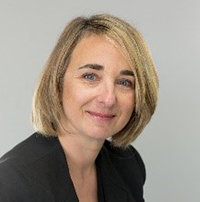 Country:
Country:
South Africa
Contact details:
Prof. Cristina Trois
Director of the Center for Renewable and Sustainable Energy Studies
Professor in Environmental Engineering
Former South African Research Chair in Waste and Climate Change (SARCHI)
Faculty of Engineering
Stellenbosch University
Room K418, Knowledge Centre, Banghoek Street, Stellenbosch, South Africa
Tel: +27 21 808 4251 I Cell: +27 82 346 2644 / Email: cristinatrois@sun.ac.za
www.crses.sun.ac.za
A bio:
Professor Cristina Trois is the Director of the Centre for Renewable and Sustainable Energy Studies at Stellenbosch University in South Africa. Full Professor in Environmental Engineering, she is the former Dean and Head of the School of Engineering at the University of KwaZulu-Natal, and the NRF South African Research Chair in Waste and Climate Change (SARCHI) at UKZN from 2018 to October 2023.
Her main fields of expertise are: Environmental and Geo-Engineering, Bioenergy, Renewable Energy from waste and Greenhouse gas control from zero waste in Africa and developing countries, Waste to Energy, Waste and Climate Change in Sustainable Cities, Waste and Resources Management, Control, Management and Treatment of landfill emissions, Green Hydrogen.
Chair of the joint secretariat for the Southern Africa Region of the UN-IPLA Programme (International Partnership for advancing waste management services of local authorities) and the IWWG (International Waste Working Group), Fellow of the South African Academy of Engineers and the Academy of Science of South Africa. Prof. Trois has over 20 years of working experience in waste management and has been the principal investigator as well as the project coordinator of many feasibility and R&D waste management/waste minimisation/treatment/design projects with municipalities in South Africa and Africa. She is advisor for waste management strategies, waste to energy projects, CDM projects and waste treatment projects to national and international governments and the private sector.
IEA expectations:
My expectations for the new triennium of the Task 36 IEA-BioEnergy are those of continuing assisting the Dept. of Energy of South Africa and SANEDI in navigating the Just Energy and decarbonisation Transition of South Africa, through the localisation of appropriate technologies, knowledge transfer within the Task Group and more importantly learning from your respective experiences more about the institutional frameworks and drivers/barriers that have enabled the introduction of innovative waste-to-energy and nutrient-recovery solutions in your respective countries, that could develop in a comprehensive institutional framework and decision making tool for South Africa, with particular respect to bioenergy projects.


